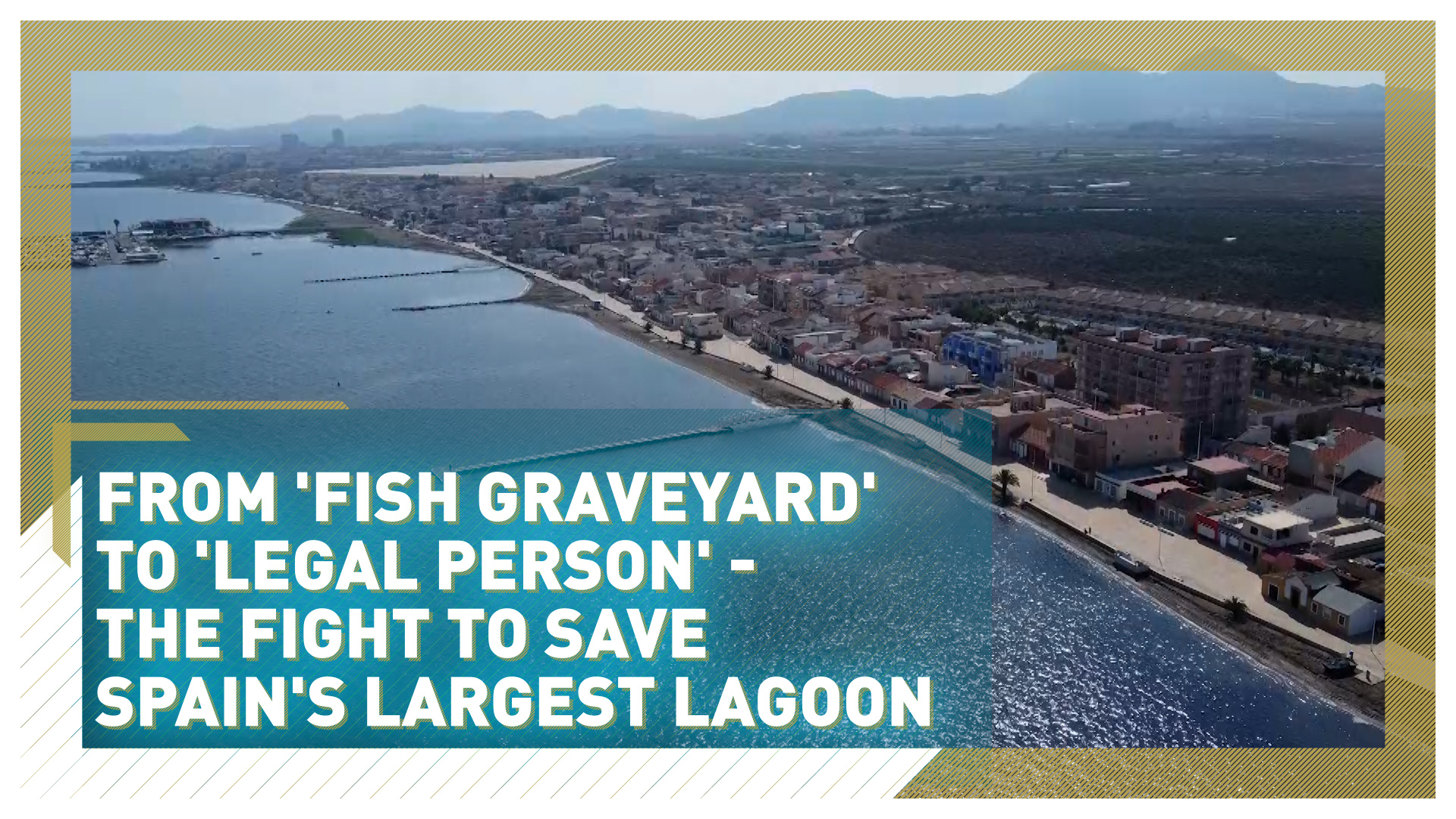02:41

Once a popular tourist destination, Spain's largest saltwater lagoon, Mar Menor, has become an ecological disaster. Now activists are seeking to protect the area with an unprecedented change in legal status.
In August 2021, thousands of fish died from a lack of oxygen in the water, washing up on Mar Menor's beaches in their tons, a process known as eutrophication.
The environmental cost of Murcia's agribusiness
Environmental activists blame the region's heavy use of fertilizers. They are urging the local authorities to restrict the intensive agriculture they say has a damaging effect on the lagoon's marine life.
The authorities have, in turn, blamed this summer's heatwave for the deaths of Mar Menor's fish.
Earlier in October, some 70,000 people rallied in Murcia, 50 kilometers from the lagoon demanding action. Solidarity demonstrations took place in Madrid, Valencia and Brussels.
Pedro Garcia, Director of ANSE Mar Menor, a pro-environment campaign group, told CGTN Europe the scenes of dead fish washing up on the lagoon's shores, was predicted years ago. It was only the scale of the problem that surprised him.
"The problem got so big that fifteen tons of dead fish washed up onto our shores this summer, I think it reached a scale way bigger than the worst-case scenarios predicted years ago," he said
Political infighting leads to inaction
Despite a growing campaign calling for an end to the pollution of Mar Menor, real change has been impeded by a row between regional and central government over who is responsible.
CGTN Europe spoke to Environmental Rights Lawyer Teresa Vicente, who said the political infighting was helping nobody.
"People took to the streets about this issue 15 years ago, when they saw the collapsing ecosystem and how it affected their lives and their children.
"Now, when most people look into this and start reading the scientific reports - they see they were fed a big lie that said 'Mar Menor is fine and provides good business for the region.' No economic model that poisons the environment can be a good thing."

People take part in a demonstration in defense of the Mar Menor lagoon, in Murcia, Spain. /Reuters/Eva Manez
People take part in a demonstration in defense of the Mar Menor lagoon, in Murcia, Spain. /Reuters/Eva Manez
A lagoon, a 'legal person'
Frustrated by a lack of action by local politicians ecologists recently submitted a formal complaint to the EU over“the continued failure" to protect Mar Menor, by Spanish authorities.
Activists are also hoping to collect 500,000 signatures for a petition calling for Mar Menor to be granted personal legal rights. If they can reach that number by October 28 the issue would have to be debated in the Spanish parliament.
They are on target to reach that. If successful it would be the first time a region in Europe was classed as a legal person with all the ensuing rights and protections.
That would mean the lagoon would be represented by three groups: legal guardians, a monitoring committee of“protectors”, and a scientific advisory board.
What's more, any citizen would also have the right to file a lawsuit on behalf of the Mar Menor.
While the lagoon would be the first ecosystem in Europe to be granted such status, there have been similar cases around the world including India, New Zealand, and Colombia.
If the Mar Menor joins the list, it could finally mean its murky waters changing for a brighter cleaner future.

